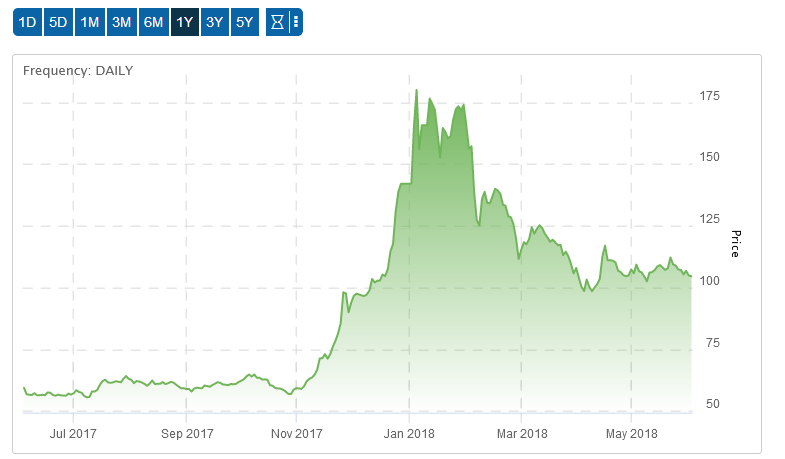A hedge-funder that bet big against the housing market prior to the 2008 crash now says cannabis is “the big long.”
Danny Moses' short-selling exploits have been chronicled in Michael Lewis' best-seller "The Big Short: Inside the Doomsday Machine," as well as Academy Award-winning movie “The Big Short.”
Now, Moses has backed up his faith in pot stocks by investing in private equity firm Merida Capital, which is focusing on the burgeoning legal cannabis sector.
Unleveraged Pot Plays
Back in 2008, Moses was head trader at FrontPoint Partners under Steve Eisman when he realized that a large number of subprime home loans were in danger of defaulting. He and Steve decided to bet against the market by throwing more than $1 billion of their investors' money into credit default swaps. Their bold move attracted the attention of several bankers, hedge funds and other opportunists who also piled into the action.
Their hunches were, of course, proven the right when the market collapsed and they made billions of dollars on their short plays.
Moses sees the legal weed sector as the antithesis of the 2008 housing market due to the latter's lack of access to capital. Marijuana is still considered illegal in most states in the U.S. and Wall Street banks are generally unwilling to lend money or underwrite deals to pot companies.
Legal Weed in Canada
According to Moses, Wall Street is beginning to warm up to these companies, with middle-market banks such as Canaccord Genuity and hedge fund Tiger Brands willing to play.
Constellation Brands' $190-million purchase of a 10-percent stake in Canadian Canopy Growth has also served as a wake-up call for prudish bankers. Canopy Growth is the world's largest weed company by market cap.
Canada is home to some of the world's largest weed companies due to a more relaxed legal environment.
Canadians are looking forward to lighting up legally—for recreation--as the necessary legal framework is put in place by the end of summer.
Back in the U.S., multiple polls have shown strong public support for legalization of recreational weed, with approval ratings of 59-64 percent. Unlike the situation further north, though, there are no definite timelines to legalize marijuana stateside; but it might not take long if the latest survey on lawmakers is any indication. Related: Peak Gold: Is It Already Here?
An October 2017 Gallup poll revealed that 51 percent of Republicans, 72 percent of Democrats and 67 percent of Independents would support marijuana legalization. In April, senate minority leader Chuck Schumer announced plans to introduce legislation to decriminalize marijuana. Only nine states have legalized recreational marijuana though 29 have given the thumbs up for medical uses.
Pot Stocks Take a Pounding
Normally, you would expect all the hoopla and verve surrounding weed legalization to push up pot stocks. Yet, weed stocks have taken a real pounding this year with the industry's benchmark down nearly 40 percent from its January multi-year highs.
Global Cannabis Stock Index 12-Month Change

Source: New Cannabis Ventures
Weed stocks did rally like mad on the news, but they ran too far too fast--a 182 percent run from November 2017 to January 2018 set the stage for a big correction.
Many pot stocks are still looking expensive, even after the correction.
Cronos Group, the first weed company to be listed on a major U.S. stock exchange, is valued at $1.2 billion despite generating only $5 million in revenue in 2017. Cowen, though, has forecast that the U.S. weed market alone will be worth $75 billion by 2030.
As Moses advised, patience is the name of the game. Maybe only ultra-longs need apply.
By Alex Kimani for Safehaven.com
More Top Reads From Safehaven.com:
















